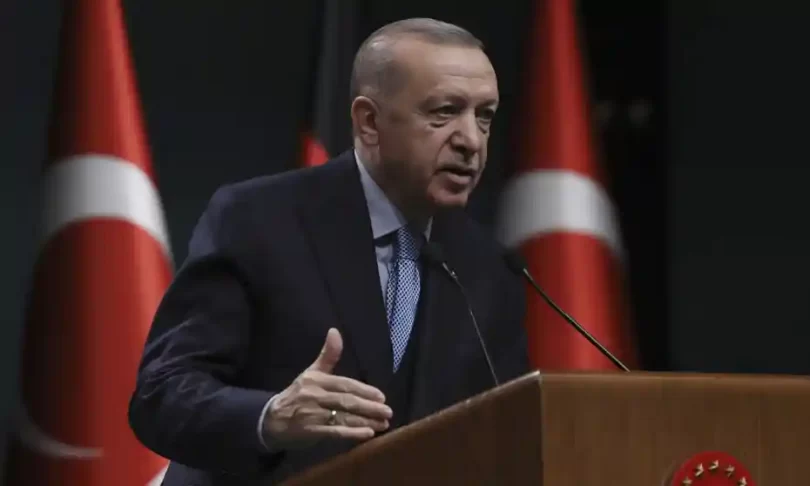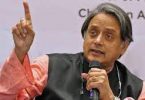Sweden on Monday decided to join neighbouring Finland in seeking NATO membership, ending more than two centuries of military nonalignment in a historic shift prompted by Russia’s invasion of Ukraine.
The move drew strong objections from Turkey, a key NATO member who declared the two nations should not be allowed to join because they have been too lax in taking action against Kurdish militants.
Countries can only join NATO if all current members agree.
Swedish Prime Minister Magdalena Andersson warned that the Nordic country would be in a “vulnerable position” during the application period and urged her fellow citizens to brace themselves for the Russian response.
“Russia has said that it will take countermeasures if we join NATO,” she said.
“We cannot rule out that Sweden will be exposed to, for instance, disinformation and attempts to intimidate and divide us.”
Sweden’s move came a day after the country’s governing Social Democratic party endorsed a plan for Sweden to join the trans-Atlantic alliance and Finland’s government announced that it would seek to join NATO.
Turkish President Recep Tayyip Erdogan on Monday ratcheted up his objection to Sweden and Finland joining NATO, accusing the countries of failing to take a “clear” stance against Kurdish militants and other groups that his country considers to as terrorists, and of imposing military sanctions on Turkey.
Erdogan also accused the two countries of refusing to extradite “terrorists” wanted by his country.
“Neither country has an open, clear stance against terrorist organisations,” Erdogan said.
“During this process, we cannot say ‘yes’ to those who impose sanctions on Turkey, on joining NATO, which is a security organisation.”
Swedish Defence Minister Peter Hultqvist told public broadcaster SVT that a Swedish delegation would be sent to Ankara to discuss the issue.
Moscow has repeatedly warned Finland, which shares a 1,340-kilometre (830-mile) border with Russia, and Sweden of repercussions should they pursue NATO membership.
But Russian President Vladimir Putin on Monday seemed to downplay the significance of their move.
Speaking to a Russian-led military alliance of six ex-Soviet states, Putin said Moscow “does not have a problem” with Sweden or Finland applying for NATO membership, but that “the expansion of military infrastructure onto this territory will, of course, give rise to our reaction in response.”
Andersson, who leads the centre-left Social Democrats, said Sweden would hand in its NATO application jointly with Finland.
Flanked by opposition leader Ulf Kristersson, Andersson said her government also was preparing a bill that would allow Sweden to receive military assistance from other nations in case of an attack.
“The Russian leadership thought they could bully Ukraine and deny them and other countries self-determination,” Kristersson said.
“They thought they could scare Sweden and Finland and drive a wedge between us and our neighbours and allies. They were wrong.”
Once a regional military power, Sweden has avoided military alliances since the end of the Napoleonic Wars.
Like Finland it remained neutral throughout the Cold War, but formed closer relations with NATO after the 1991 Soviet collapse.
They no longer see themselves as neutral after joining the European Union in 1995, but have remained nonaligned militarily until now.
After being firmly against NATO membership for decades, public opinion in both countries shifted following Russia’s February 24 invasion of Ukraine, with record levels of support for joining the alliance.
The Swedish and Finnish governments swiftly initiated discussions across political parties about NATO membership and reached out to the US, Britain, Germany, and other NATO countries for their support.
On Sunday, Andersson’s party reversed their long-standing position that Sweden must remain nonaligned, giving NATO membership overwhelming support in Parliament.
Only the small Left and Green parties objected when the issue was discussed by lawmakers on Monday.
Left Party leader Nooshi Dadgostar, whose calls for a referendum on the matter were dismissed by the government, said joining NATO would raise tensions in the Baltic Sea region.
“It does not help Ukraine,” she said.
Andersson said Sweden would make clear that it doesn’t want nuclear weapons or permanent NATO bases on its soil — similar conditions as neighbouring Norway and Denmark insisted on when the alliance was formed after World War II.
During a visit to Helsinki on Monday, Senate Republican leader Mitch McConnell said there is “very significant” support in Congress for welcoming Finland and Sweden to the alliance and that he expects ratification before the August recess.
In a joint statement, Nordic NATO members Norway, Denmark, and Iceland said they were ready to assist Finland and Sweden “with all necessary means” during the application process.







